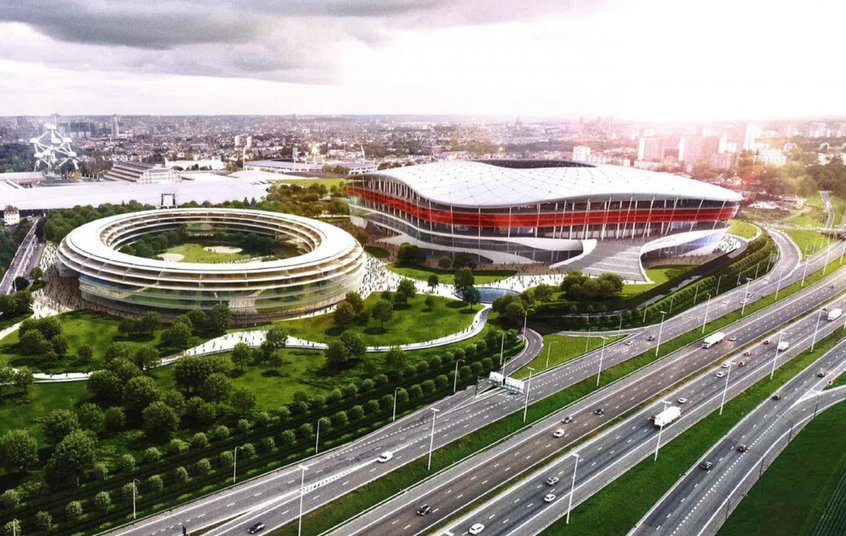By Samindra Kunti
January 31 – Flemish authorities shattered construction plans for Belgium’s ‘Eurostadium’ on Tuesday. In December Brussels was stripped by UEFA of its Euro 2020 hosting rights and replaced by London’s Wembley Stadium after delays in the stadium project.
From grand plans for a new state-of-the-art national stadium and dreams of hosting Euro 2020 to no stadium at all. Welcome to Belgium, anno 2018, and the nail in the coffin for the ‘Eurostadium’. The death knell was rung on Tuesday when local authorities ended the stadium project by denying planning permits.
Back in September 2014 UEFA chose Brussels as one of the 13 venues to host Euro 2020, a pan-European tournament, which former UEFA president Michel Platini coined as a ‘romantic’ one-off to celebrate the 60th birthday of the European Championship. Brussels was chosen ahead of Cardiff to stage group matches and a round of 16 match.
UEFA had repeatedly warned that Brussels had to meet the delivery deadline of 2019, but last month the governing body’s patience finally ran out and the Belgian capital was stripped of hosting its matches during the next European Championship. Flemish Environment Minister Joke Schauvliege’s decision on Tuesday was the culmination of a saga that pitted the French-speaking capital against the Dutch-speaking community in Flanders.
Schauvliege highlighted that the scale of the project was too big and, given written submissions, incompatible with the traffic and accessibility concerns in Brussels, a city marked by traffic gridlock. The projected stadium, including recreational areas, was planned for 100,000 square meters.
The stadium project had always been a contentious issue, a tangled web of administrative obstacles and local politics. Detractors claimed the stadium was a venture for private profit, led by the minister of finance of Brussels Guy Vanhengel and alderman Alain Courtois. In the past, Courtois was one of the driving forces behind the organisation of Euro 2000, co-hosted by Belgium and the Netherlands. He also spearheaded the Low Countries’ bid for the 2018 World Cup.
Club Brugge, eternal rivals of Anderlecht, alleged that the Brussels-based club would disproportionally benefit from the construction of the Eurostadium, with Anderlecht contemplating a move from its small and outdated stadium to the new venue.
The construction of the stadium also faced a myriad bureaucratic obstacles and delays as the venue site was just outside of Brussels’ city limits. The Eurostadium was to be built on Parking C, on Flemish territory, in the vicinity of the current Heysel stadium, but various procedures, including applications for an environmental and construction permit, set the project back.
The city of Brussels had given the projected building site of the stadium in leasehold for 99 years to construction magnate Ghelamco for a symbolic euro. Ghelamco would have been allowed to build office space, hotels and restaurants on the site of the stadium. The projected prize tag of €432 million and the manner of financing of the stadium had plenty of eyebrows raised, with the Eurostadium facing opposition over public funding.
Ghemlanco and other stakeholders still have the opportunity to appeal Schauvliege’s decision, but with little chance of success. “Ghelamco is committed to finding sustainable and legitimate solutions and realizing a stadium,” said Ghelamco boss Paul Gheysens to local media. “I do not give up.”
Contact the writer of this story at moc.l1732209437labto1732209437ofdlr1732209437owedi1732209437sni@i1732209437tnuk.1732209437ardni1732209437mas1732209437

